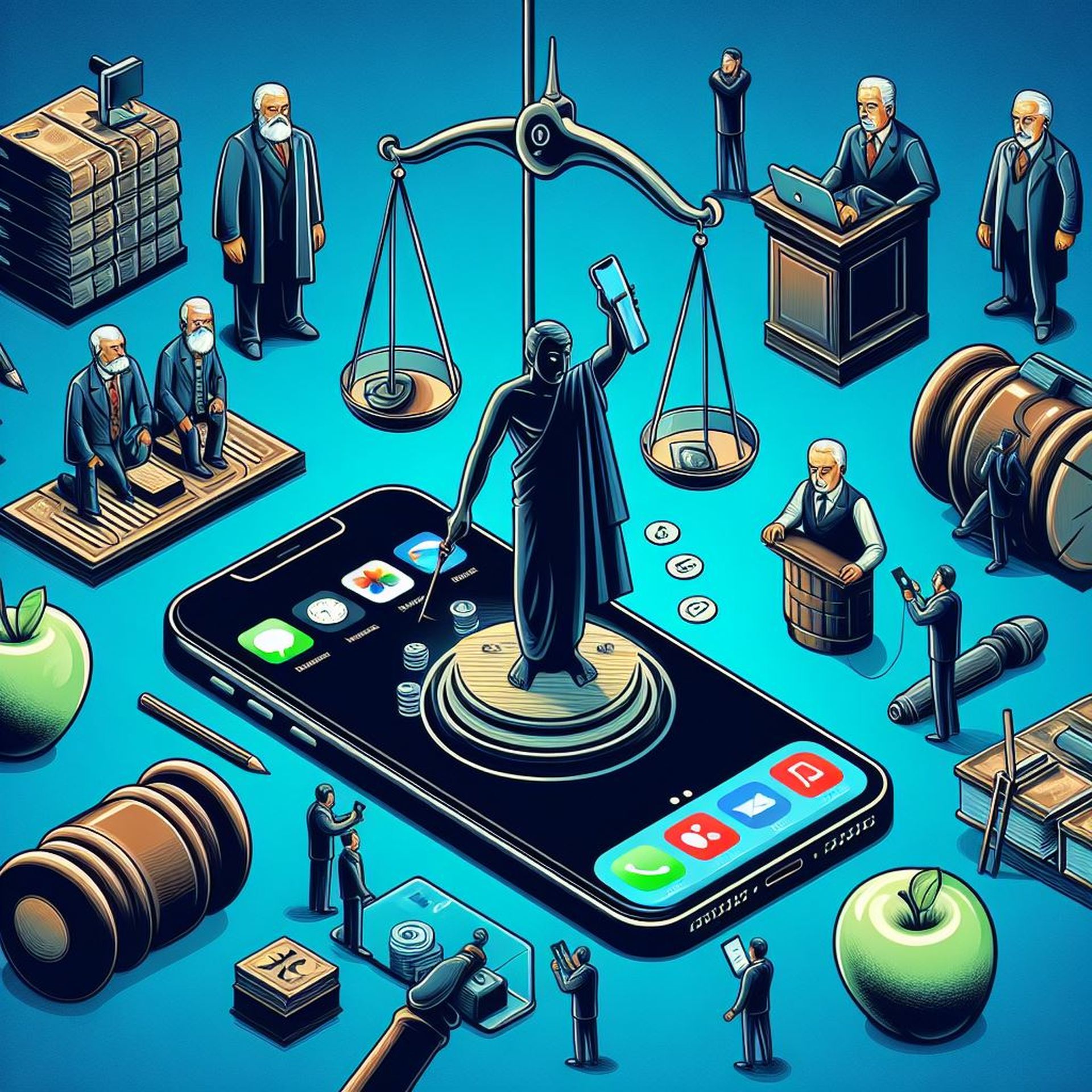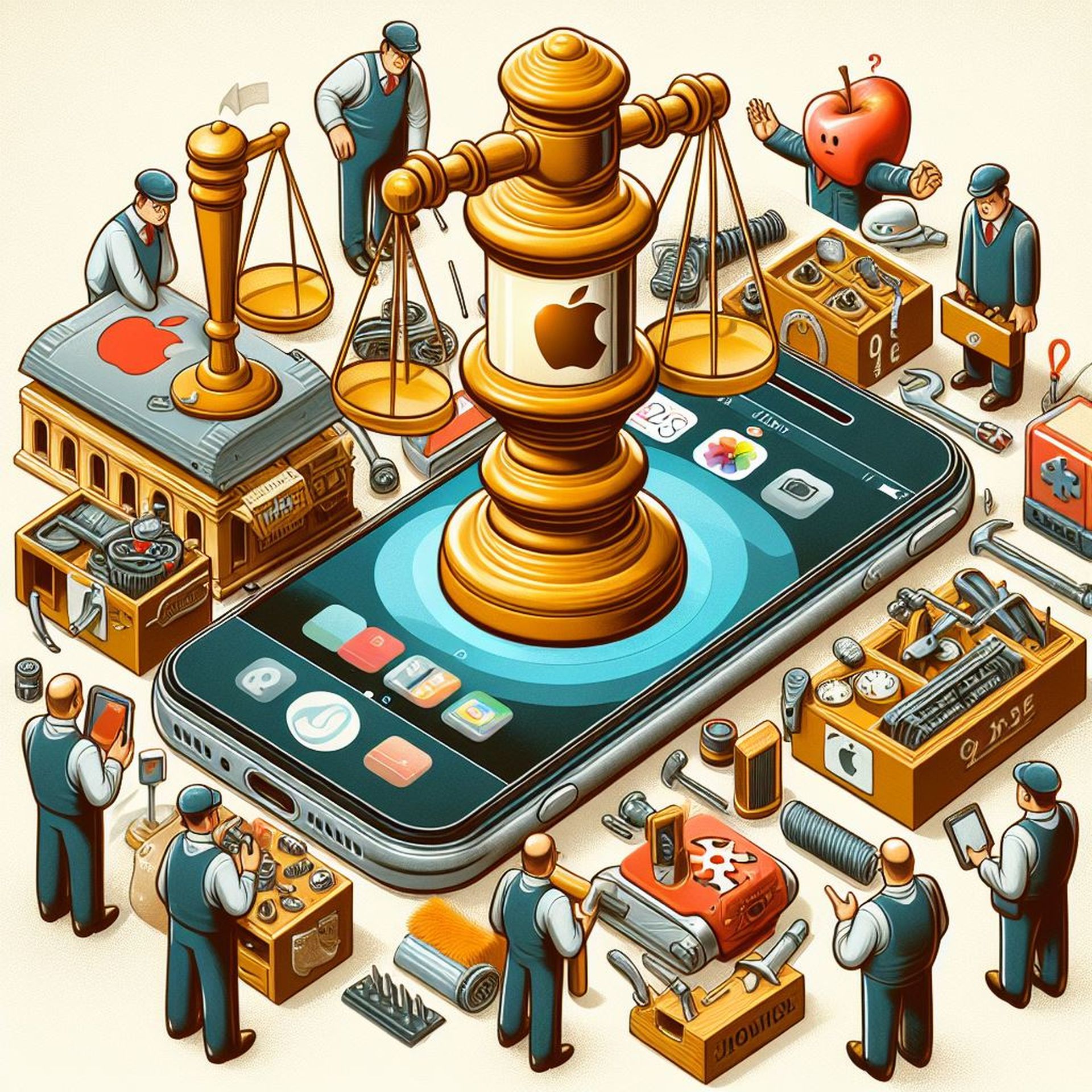The Department of Justice (DOJ) has filed a landmark lawsuit against Apple. Let’s explore the iPhone monopoly lawsuit, where the DOJ accused the tech giant of wielding excessive power in the marketplace and stifling competition and innovation.
This article explores the key points of the lawsuit briefly: Apple’s alleged dominance, the company’s response, specific accusations, the DOJ’s desired outcome, and the potential impact on consumers and the tech landscape as a whole. Get ready to unpack Apple’s iPhone monopoly lawsuit and its potential consequences—it’s a high-stakes battle with far-reaching implications.

US sues Apple: iPhone monopoly lawsuit explained
The Department of Justice (DOJ) has filed a lawsuit against Apple, accusing the company of dominating the smartphone market and hurting competition. Here are the main points:
- What’s Apple’s iPhone monopoly lawsuit about?: The DOJ alleges that Apple has gained too much power in the smartphone industry, making it difficult for other companies to compete. They claim this hurts innovation and limits choices for consumers by these alleged methods:
- Blocking innovative super apps: Apple stands accused of impeding the growth of apps with expansive functionality, known as super apps, which could facilitate seamless transitions between different smartphone platforms. By limiting the development of such apps, Apple allegedly maintains its grip on users and stifles competition.
- Suppressing mobile cloud streaming services: The DOJ alleges that Apple has thwarted the advancement of cloud-streaming apps and services, denying consumers access to high-quality video games and other cloud-based applications without the need for expensive smartphone hardware. This suppression allegedly serves to bolster Apple’s own offerings while curtailing alternatives
- Excluding cross-platform messaging apps: Apple is accused of intentionally degrading the quality, innovation, and security of cross-platform messaging apps to incentivize users to remain within the Apple ecosystem. By limiting interoperability, Apple allegedly compels users to stick with iPhones to maintain consistent messaging experiences
- Diminishing non-Apple smartwatches’ functionality: The lawsuit asserts that Apple has deliberately restricted the capabilities of third-party smartwatches, thereby coercing users into purchasing Apple Watches to access full functionality. This alleged tactic imposes significant costs on users who opt for non-Apple devices.
- Limiting third-party digital wallets: Apple purportedly hampers the creation of cross-platform third-party digital wallets by preventing tap-to-pay functionality in third-party apps. This limitation, according to the DOJ, undermines competition and innovation in the digital payments space.
- What does Apple say?: Apple denies the accusations. They argue that they operate fairly and that their practices have led to positive outcomes for consumers. Apple pledges to vigorously defend themselves against the claims made by the DOJ.
- What’s Apple accused of doing?: The lawsuit lists several actions by Apple that the DOJ believes are anti-competitive. These include restricting the functionality of non-Apple smartwatches, making it challenging for other payment systems to work smoothly on iPhones, and not allowing its messaging service to communicate with other platforms seamlessly.
- What does the lawsuit want?: The DOJ wants Apple to change its practices to level the playing field for other companies. They seek to prevent Apple from engaging in actions that could maintain or strengthen its dominance in the market. Additionally, they aim to ensure that Apple’s agreements and contracts don’t unfairly disadvantage competitors.
- Why does it matter?: If the lawsuit succeeds, it could have significant implications for the smartphone industry and consumers. It could lead to more competition, potentially resulting in lower prices and more innovation. Additionally, it could set a precedent for how other big tech companies are regulated in the future.
- What happens next?: The legal process will unfold over time. Apple and the DOJ will present their arguments, and a decision will be made by the court. Regardless of the outcome, this lawsuit underscores the government’s efforts to promote fairness and competition in the tech industry. It’s an ongoing story that will continue to evolve.
Apple’s App Store antics face fresh scrutiny from tech titans

The DOJ’s lawsuit against Apple is a big deal, and it could change the way smartphones are made and used. We’ll have to wait and see what happens, but it’s definitely something to keep an eye on.
Want to learn more? Click here to get the DOJ’s official complaint.
All images are generated by Eray Eliaçık/Bing





